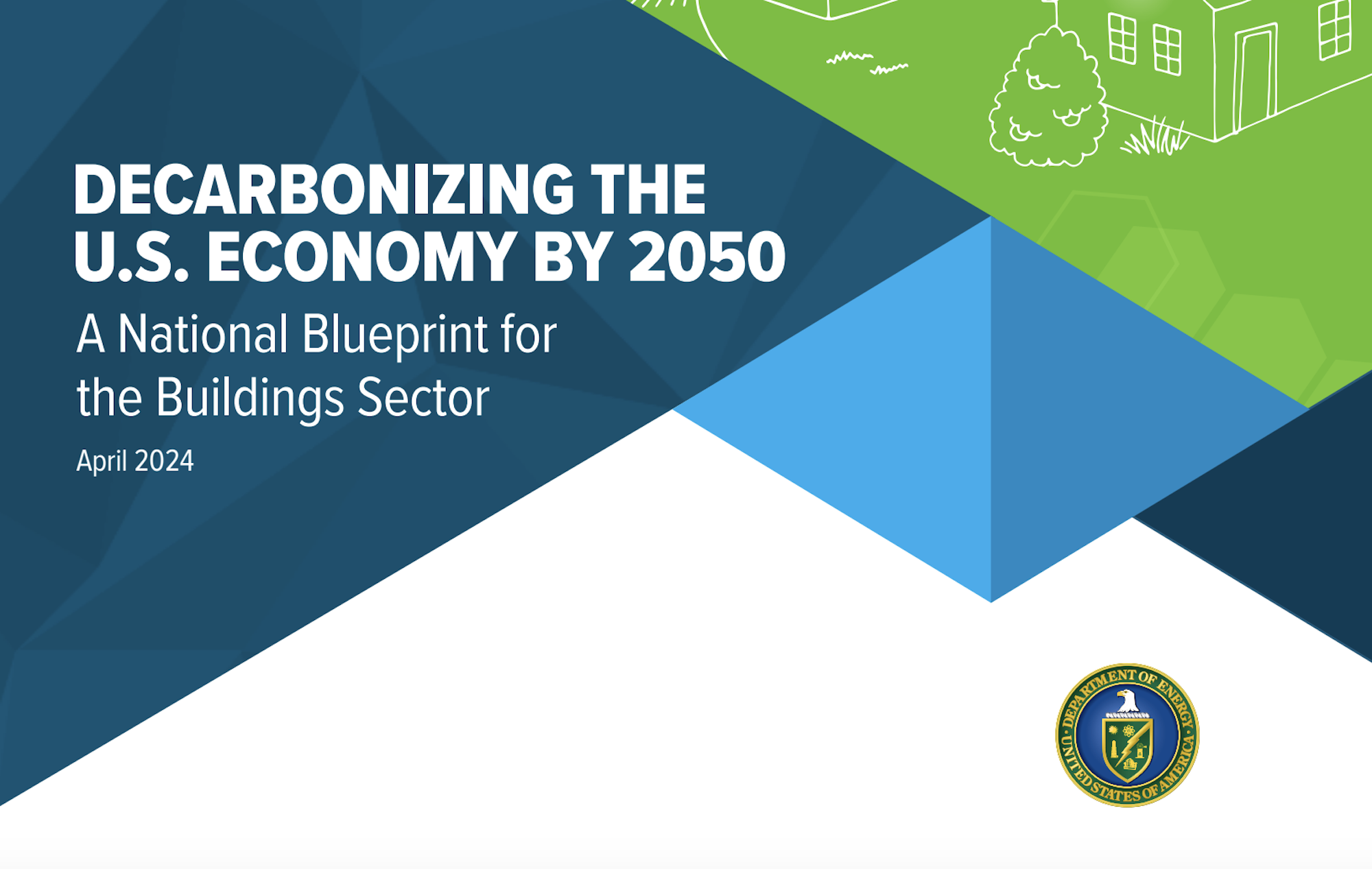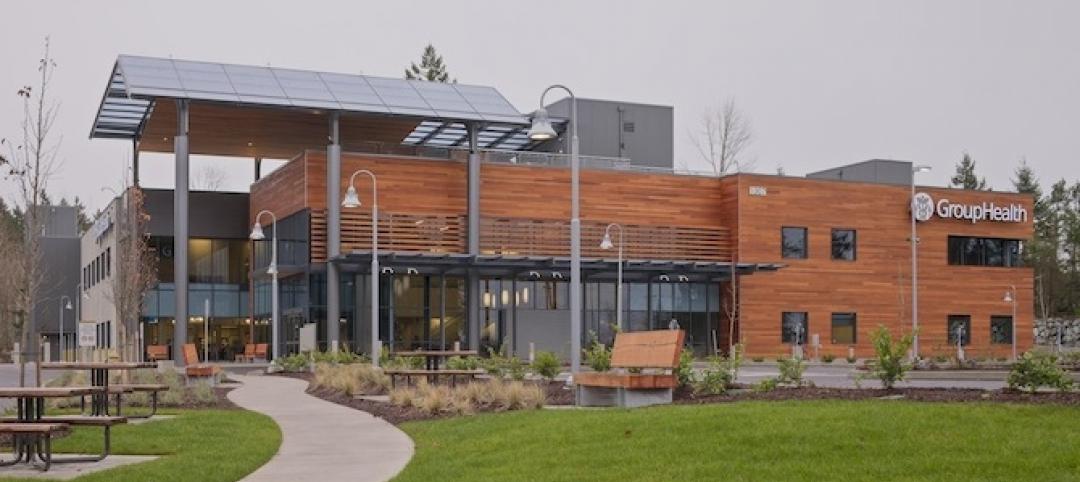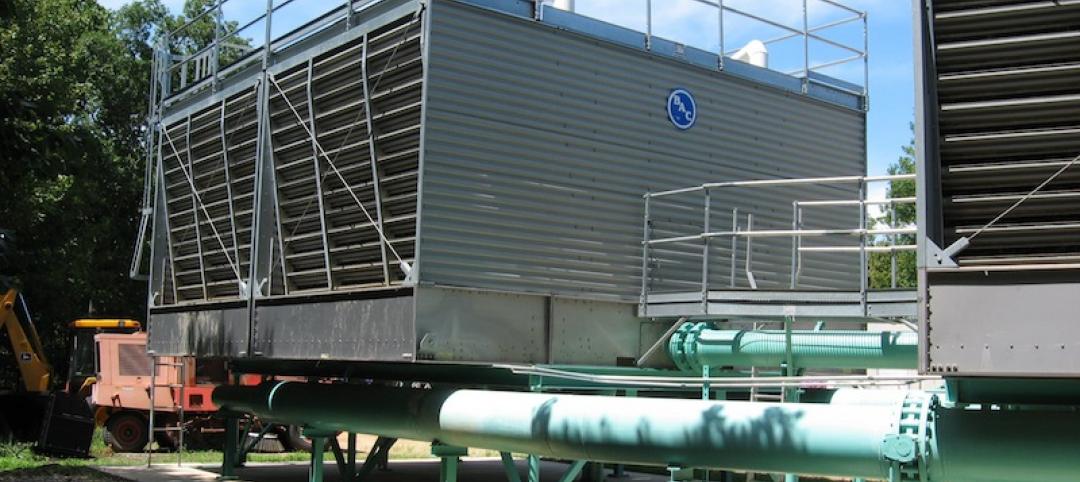The Biden Administration recently released “Decarbonizing the U.S. Economy by 2050: A National Blueprint for the Buildings Sector,” a comprehensive plan to reduce greenhouse-gas (GHG) emissions from buildings by 65% by 2035 and 90% by 2050.
The Blueprint is the first sector-wide strategy for building decarbonization developed by the federal government. It outlines ways to reduce energy in homes, schools, and workplaces.
To reach the emissions reduction targets for the buildings sector, the Blueprint sets four strategic objectives:
• Increasing building energy efficiency
• Accelerating onsite emissions reductions
• Transforming the interactions between buildings and the electricity grid
• Minimizing the emissions from producing, transporting, installing, and disposing of building materials
Each objective has specific performance targets and market, policy, and technology milestones to reach by 2035 and 2050. Meeting these targets will require accelerated deployment of a wide range of decarbonization and energy efficiency technologies. The Blueprint outlines coordinated federal actions that can increase the speed and scale of solutions deployments. Those actions include funding research and development to develop lower-cost technologies, expanding markets for low-carbon technologies, providing direct funding and financing, and supporting the development and implementation of emissions-reducing building codes and appliance standards.
The Department of Energy, a key player in the administration’s decarbonization drive, is focused on building innovations in three pivotal areas: building upgrades, efficient electrification, and smart controls.
Related Stories
| May 27, 2013
Bipartisan legislation filed to revamp EPA lead rule
Bipartisan legislation has been introduced in the U.S. House of Representatives to reform the Environmental Protection Agency's (EPA) Lead: Renovation, Repair and Painting (LRRP) Rule.
| May 27, 2013
Bill would mandate contractors use subs identified in bids on federal projects
Rep. Carolyn Maloney (D-N.Y.) filed a bill in May that would require prime contractors that bid on federal construction projects over $1 million to list each subcontractor they plan to use for $100,000 or more of work.
| May 27, 2013
Maryland law on codes for wind resistance will take effect in October
The Insurance Institute for Business & Home Safety says that Maryland citizens will be safer due to legislation passed by the legislature and signed into law by Gov. Martin O’Malley.
| May 23, 2013
AGC Contractors Environmental Conference focuses on compliance issues
The 2013 AGC Contractors Environmental Conference June 13 and 14 in Arlington, Va., will include cost-effective strategies for firms to remain compliant and competitive.
| May 23, 2013
ASTM releases new carbon steel hollow structural sections
ASTM has released a new HSS standard, A1085 - 13 Standard Specification for Cold-Formed Welded Carbon Steel Hollow Structural Sections (HSS).
| May 23, 2013
Group Health Puyallup medical center first project to achieve 'LEED for Health Care' certification
The Group Health Puyallup (Wash.) Medical Center is the first facility to be certified under the LEED for Healthcare (LEED-HC) rating system, earning LEED Gold.
| May 17, 2013
LEED v4 has provision to reduce water use in cooling towers
The next version of the U.S. Green Building Council's LEED rating system will expand water-savings targets to appliances, cooling towers, commercial kitchen equipment, and other areas.
| May 15, 2013
New York City Council okays plans for Cornell's huge net-zero tech campus
Cornell University's proposal to build a two million sf tech campus on Roosevelt Island has been approved by the New York City Council.
| May 15, 2013
Center for Green Schools, Architecture for Humanity release new tool for green schools
The 70-page guide demystifies the processes of identifying building improvement opportunities and finance and implementation strategies.
| May 15, 2013
AAMA extends NAFS certification on fenestration products
The American Architectural Manufacturers Association (AAMA) announced the release of an interim procedural guide that will provide a documented, optional process to extend current, unexpired AAMA product certification to any edition of AAMA/WDMA(/CSA) 101/I.S.2(/A440), North American Fenestration Standard/Specification for windows, doors, and skylights (NAFS).













